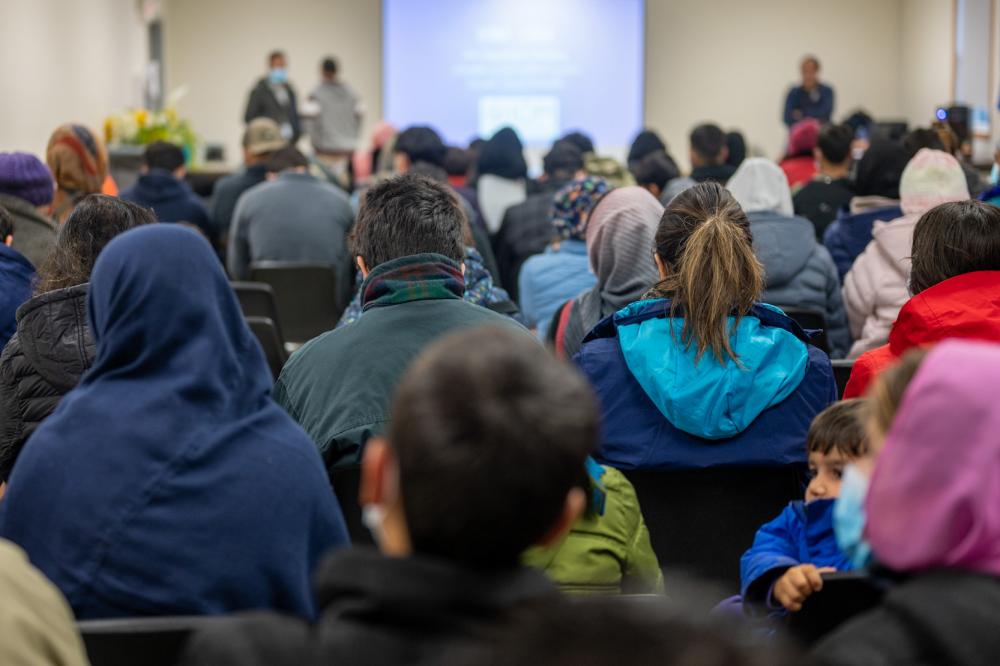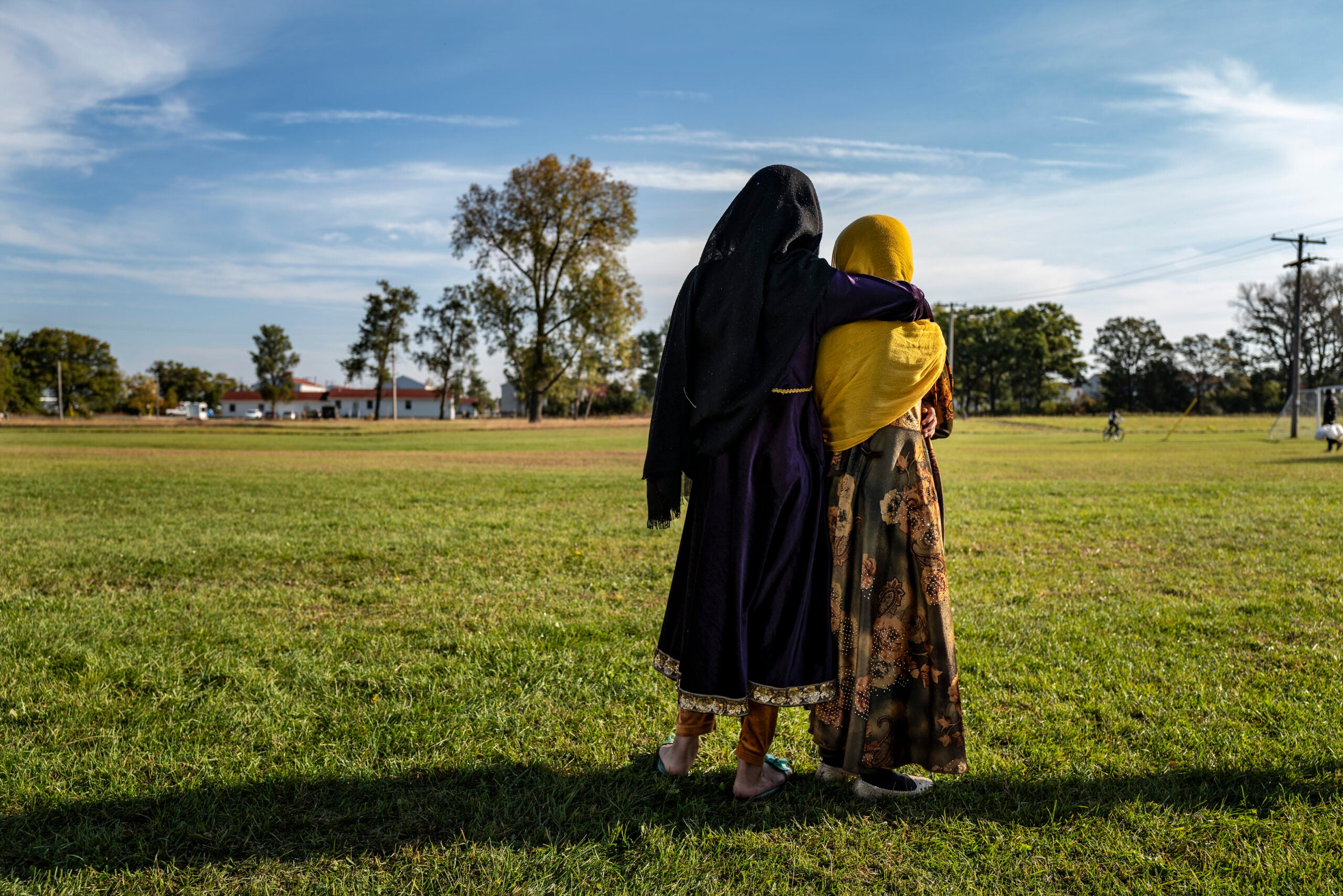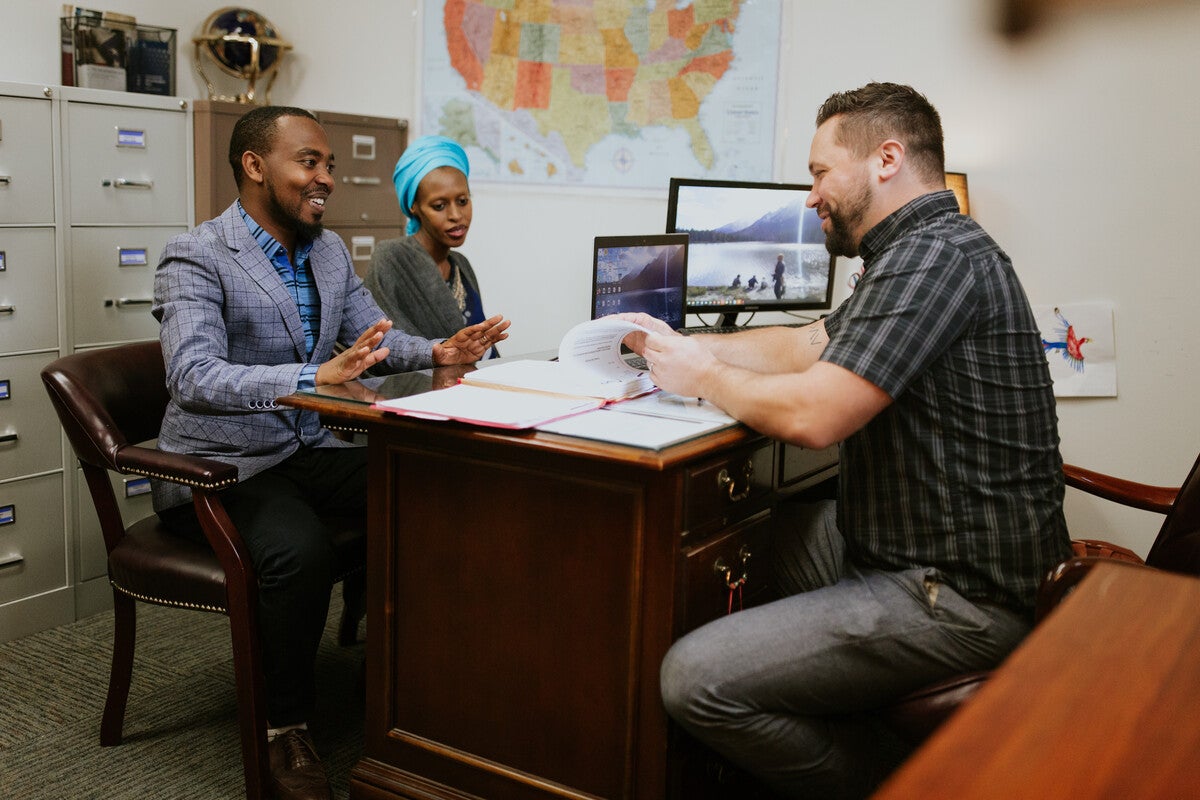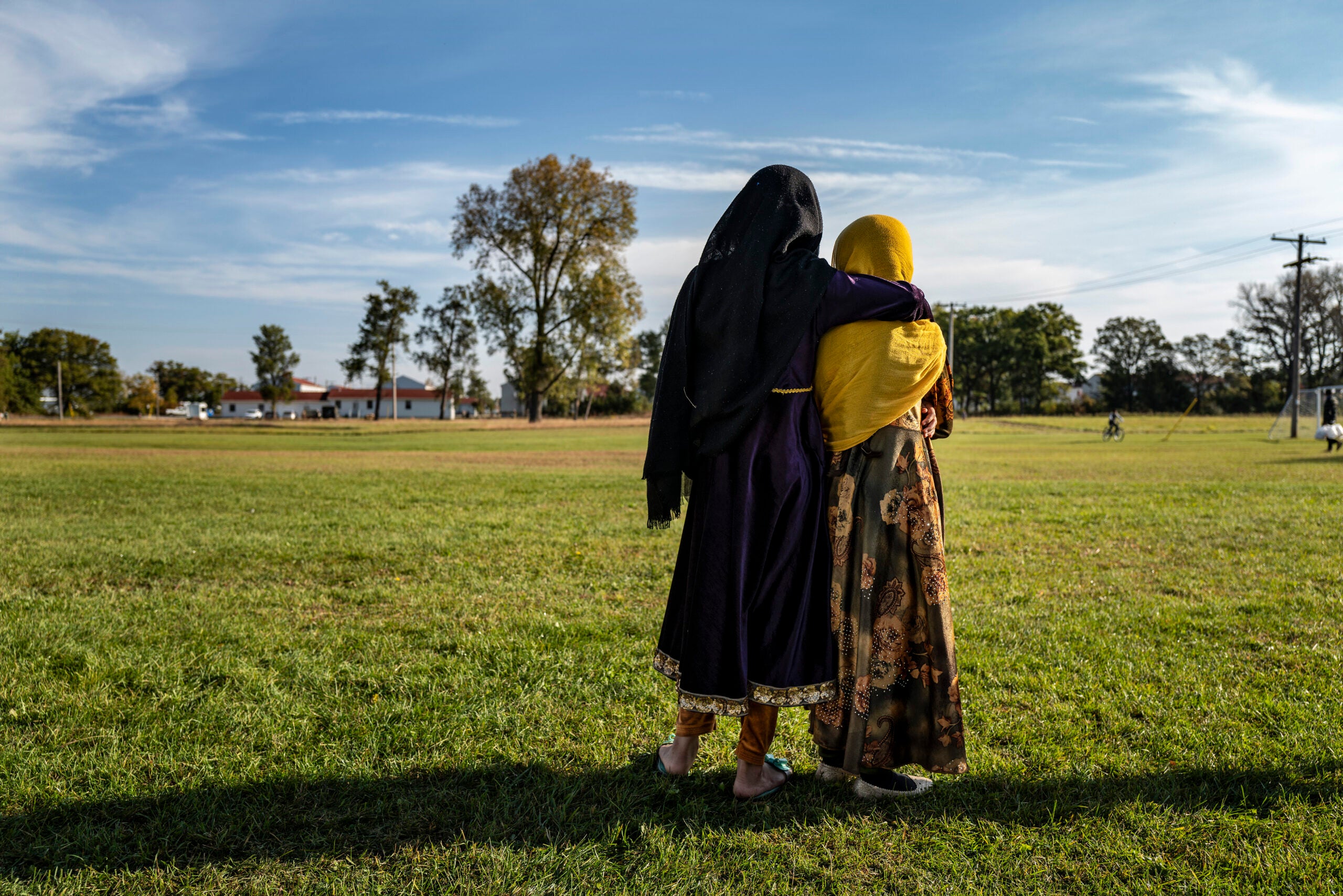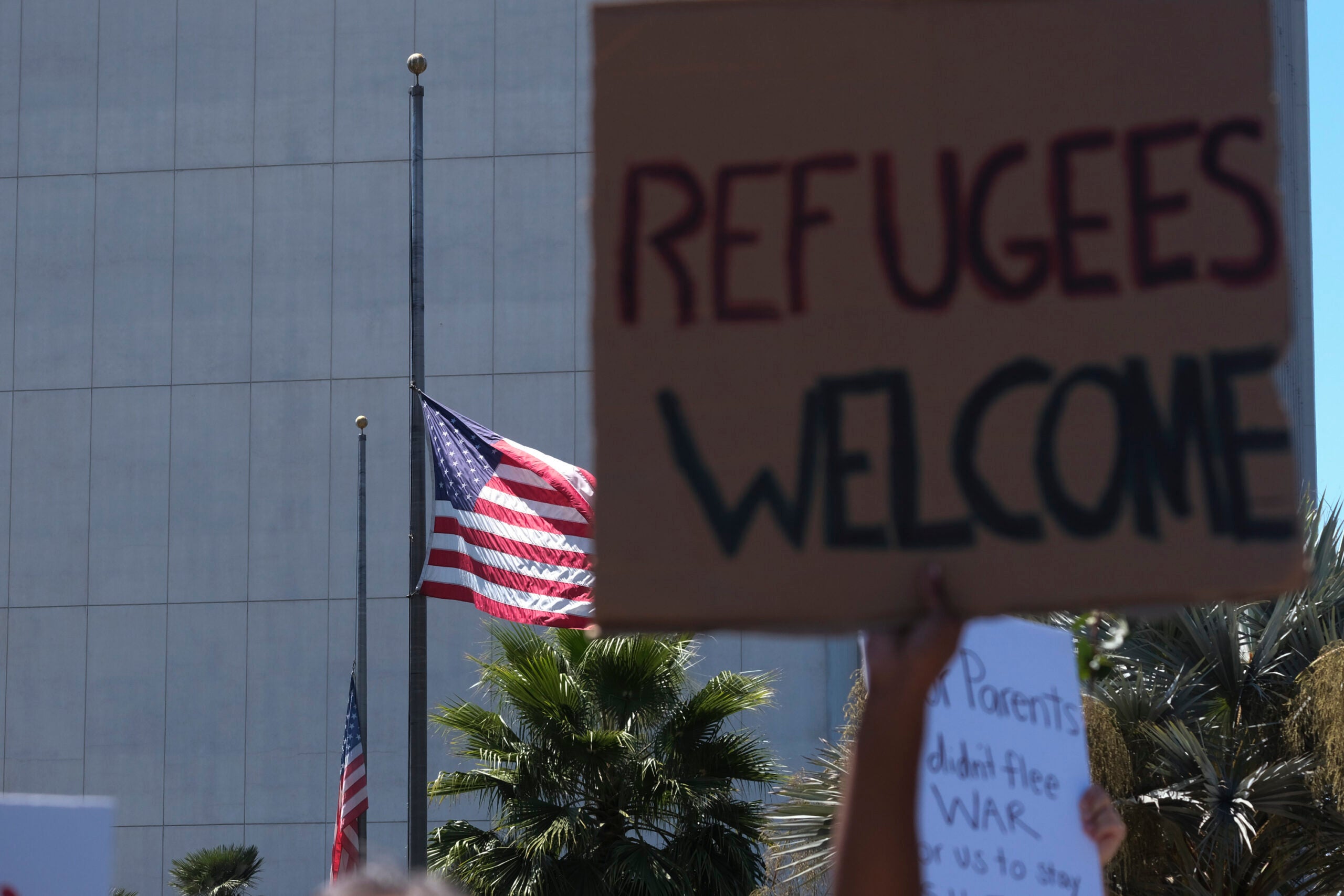Organizations resettling refugees in Wisconsin say their work has started to return to normal after welcoming an influx of people from Afghanistan this winter. But the historic effort has had some lasting impacts on the way resettlement agencies are operating going forward.
Around 830 Afghans were resettled in Wisconsin this winter after being evacuated when the U.S. military withdrawal from Afghanistan last August led to a Taliban takeover of the country.
Dawn Berney is executive director of Jewish Social Services of Madison, one of the state’s six resettlement agencies. She said all other resettlement cases were put on hold from October 2021 to the end of February as they worked to settle around 70 Afghan evacuees. But in the last two months, her organization has started receiving people through the regular U.S. Refugee Admissions Program again, most recently from Syria and the Democratic Republic of Congo.
News with a little more humanity
WPR’s “Wisconsin Today” newsletter keeps you connected to the state you love without feeling overwhelmed. No paywall. No agenda. No corporate filter.
Berney said Jewish Social Services started resettling refugees in Madison in 2017 and saw refugee admissions remain stagnant or decline for years before the Afghan evacuation.
“We went from resettling under 30 people in one year, to this year, where we are well over 100 and it’s only partially through the year. So for us, that was a huge change,” Berney said.
She said her organization had a “skeleton staff” before the Afghan evacuation, but they’ve hired several new employees in the last few months to handle the influx of cases. And that will help going forward as they continue to welcome new arrivals.
“We’re now finally at the point where we’re at capacity in terms of having enough staff, so that when we do have blips and several families are coming at once, it’s much more manageable for us,” she said.
But Berney said she is worried about volunteer support after the intense period of resettlement at the start of the year. She said many of the people who stepped up to help welcome Afghans are now exhausted and need a break, prompting her organization to start looking for new volunteers to spread out the work.
To prevent volunteer burnout, Tami McLaughlin, head of World Relief Fox Valley, said her organization recently added a coordinator to support their local sponsorship groups, what they call Good Neighbor teams.
“Teams really need support in terms of how do we welcome people who have such different customs? How do we communicate with people that we don’t talk the same language?” McLaughlin said. “There is kind of a burnout and an emotional overload, if you will, and emotional stress.”
She said her organization worked with 141 new volunteers to help resettle Afghans, and they hope the community support will continue because of the increased awareness about the needs of refugees.
McLaughlin said World Relief Fox Valley has settled 181 Afghans in Oshkosh, Appleton and Menasha. They could receive around 20 more people in the coming months as the U.S. accepts additional Afghans waiting in third party countries. World Relief Fox Valley has also welcomed families from Pakistan, Syria and the Democratic Republic of Congo so far this year.
Finding housing continues to be a struggle for resettlement
McLaughlin said the biggest challenge continues to be finding housing for new arrivals. But one strategy that helped her organization find new landlords to work with was paying double security deposits, a practice they hope to continue moving forward. She said half of the money came from the stipend each new arrival receives from the federal government, while the other half came from community donations.
“We really felt that this was a two-fold benefit. First for the landlord that received extra security for renting to people who don’t have credit history, who don’t have work history,” she said. “We’re encouraging (the new arrivals) to be good tenants, fulfill your lease, stay 12 months, keep it in good condition, report, you know, anything that needs to be done to the landlord. And if you do all that … you’ll get a double security deposit back and that can assist you going into a different place or maybe you want to stay there and use that money for other things.”
Berney said housing has also been a major challenge for Jewish Social Services of Madison. She said finding affordable rentals that are large enough for families is a particular challenge in Madison.
“Getting the documentation or the paperwork so that you can legally work in this country is much slower than typical, which is also making things harder. Whereas historically, somebody could get the appropriate papers within a couple of weeks so that they can legally start working, now it could be four or five months before that paperwork comes through,” Berney said.
Adam VanNoord is director of the Ethiopian Community Development Council’s Multicultural Community Center in Wausau, Wisconsin’s newest resettlement office. The group’s first cases were part of the Afghan resettlement efforts and VanNoord said it was an intense period for the new organization.
“As an agency that aspires to grow and develop capacity to improve our programming, it really put us on a fast track. We had to staff up very quickly. We had to really understand our program requirements and the ins and outs of what we’re required to render in terms of services on a timescale that was much, much shorter,” VanNoord said. “So while it might have been more comfortable to start up in a kind of normal refugee resettlement environment, I don’t think we would be anywhere near where we are today had that happened.”
He said the group also had to quickly develop a network of local sponsorship groups and volunteers, investments he said will make welcoming future refugees more seamless.
VanNoord said they welcomed 71 people between the end of December 2021 and mid-February. The group has since had a break in resettlements, but anticipate welcoming people from Burundi, Congo and Somalia in the coming months.
He said resettlement leaders are also paying attention to the Biden administration’s plan to welcome refugees from Ukraine who are fleeing the war with Russia. But VanNoord said the administration’s announcement on Monday indicates that those efforts will rely more on a community sponsorship model.
“What we’ve been hearing is that we will see maybe a trickle of folks coming through the standard U.S. Refugee Admissions Program to our communities with the support of our agency”, he said. “However, the vast majority of that 100,000 (people) that they’ve put out there as a number is going to be supported by families, individuals and other types of community groups across the nation.”
It’s a model that debuted as the Welcome.US program last September to help settle Afghan evacuees. While it’s newer approach, VanNoord said there’s evidence it could be successful for welcoming Ukrainians without overwhelming the resettlement system.
Wisconsin Public Radio, © Copyright 2026, Board of Regents of the University of Wisconsin System and Wisconsin Educational Communications Board.
